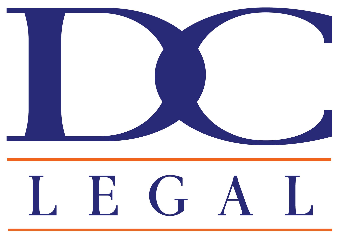Kirkland Bankruptcy Attorneys
Simply put, bankruptcy means the resolution of debts through legal means. Most individuals have two distinct choices when it comes to filing bankruptcy — Chapter 7 (liquidation) and Chapter 13 (debt repayment). No matter which avenue you decide to pursue, our Kirkland bankruptcy attorneys at DC Legal are committed to ensuring that the process is simpler, less intimidating, and as painless as possible for you.
Filing for bankruptcy represents you taking steps to regain financial control. It stops harassment from bill collectors, mounting late fees, skyrocketing interest charges due to poor credit history, and above all, it provides legal protection when you need it most. Bankruptcy can also be a valuable resource to save your home from the Foreclosure process.
In most cases, it is better to rebuild your credit after a bankruptcy than to let things keep rampaging out of control. In fact, you may qualify for secured credit cards within a year, and may even qualify for a mortgage in approximately three years depending on various factors — this includes income, post-bankruptcy credit history, and employment.
Chapter 7 Bankruptcy
You can erase debt with a “Straight Bankruptcy” if you meet the standards that are currently in effect from legislation passed by Congress in 2005. A Chapter 7 bankruptcy will eliminate unsecured debt, such as credit cards, utility bills, medical bills, personal loans, and debt owed on a repossessed car.
Debt Not Covered
Chapter 7 bankruptcy will not eliminate secured debt, like car loans and mortgages. If you want to keep your house or car, you must continue to make these payments. Also, Chapter 7 will not eliminate debt such as student loans, recent tax bills, parking tickets, child support, alimony payments, or accidents caused by drunk driving. These types of debt can only be dealt with through Chapter 13 (outlined below).
Student Loans
The laws regarding the elimination of student loans changed in October 1998. The only way to get rid of student loans now is if you can prove extreme hardship.
Tax Debt
Generally, tax debt is dischargeable only if the debt is over three years old from the time it first became due.
Avoiding Issues when Filing Chapter 7
Because of the many nuances in Chapter 7 law, the specific terms of any filing will only become clear once the facts of a particular situation are known. However, if you are considering filing Chapter 7, there are a few things you should not do under any circumstances such as:
- Do not make any purchases or take any cash advances on any of your credit cards.
- Do not pay off any of your credit cards. This is called a “preference” and will make it extremely difficult to get a discharge.
- Do not make any property transfers.
The Filing Process
Typically, with a Chapter 7 bankruptcy filing, bankruptcy court appearances are not necessary. As your attorney, we will accompany you to an informal meeting that takes place about five weeks after your case is filed. This meeting is referred to as a section 341 meeting or a meeting of creditors. The purpose of this meeting is to verify whether you have any non-exempt assets, which will be determined through a few very brief questions asked by a court-appointed trustee. Your creditors are given notice of this meeting and are permitted to question you, but typically are not present. The meeting generally takes less than five minutes, and your discharge papers will arrive in the mail roughly two and a half months later.
Chapter 13 Bankruptcy
Chapter 13 is often referred to as a “Court Ordered Debt Consolidation.” Chapter 13 will stop a pending foreclosure or car repossession. It will stop a wage assignment or wage garnishment. It will even prevent the IRS from taking any tax refunds that you are entitled to. In short, Chapter 13 will allow you some breathing room so you can reorganize your finances.
Reorganize Your Debt
When you file a Chapter 13, you are essentially consolidating all of your debt into one large debt sum. Payments are made either once a month by you to a court-appointed trustee, or are deducted automatically from your paycheck — whichever you prefer. The trustee will then distribute your money among all of your creditors according to a plan that our experienced bankruptcy attorneys will help you formulate.
In Chapter 13, you only have to pay back what you can afford. This determination is based on your income, your living expenses, the amount of your debt, your assets, and the type of debt you have. Chapter 13 can help you deal with recent student loans, tax debt, parking tickets, and other debt that cannot be discharged in a Chapter 7 case.
The Filing Process
Filing Chapter 13 is simple. After your case is filed with the court, we will accompany you to the office of the trustee. This meeting takes place about six weeks after your case is filed and is very informal. During the meeting, a trustee will go over your case to ensure the plan we have filed on your behalf is workable. Assuming that the trustee recommends your plan, your case will be set for confirmation in front of a judge. You do not need to be present in court for your confirmation hearing — we will be there for you. However, you will be responsible for fulfilling your monthly payment to your trustee. If you prefer, we can arrange for your payment to be automatically deducted from your paycheck.
Duration of Chapter 13
The typical Chapter 13 plan will last between three and five years. If your financial situation improves during that time, you may choose to pay off your Chapter 13 plan in a shorter amount of time without penalty.
We are a debt relief agency, and help people file for bankruptcy under Federal Law. Download the Washington Bankruptcy Preparation Worksheet (PDF file above) to get started.

